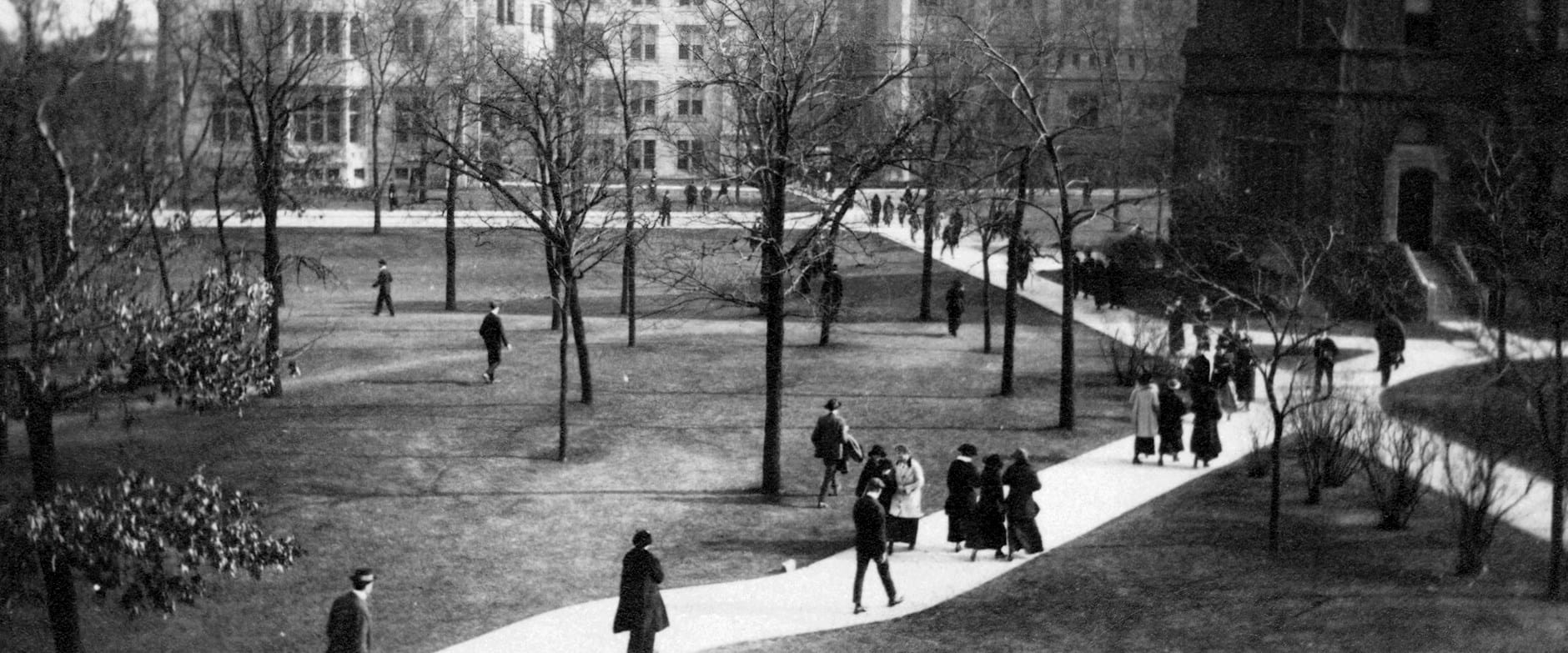
1916
First Comprehensive Business Curriculum
The University of Chicago established a business school in 1898, but it wasn’t until 1916 that the University changed the school’s name from the College of Commerce and Administration to the School of Commerce and Administration, with a separate budget and the power to grant advanced degrees, first the MA, and later the PhD. That same year, the university joined with more than a dozen other institutions of higher education to form the American Assembly of Collegiate Schools of Business (now AACSB International) to support business education in colleges and universities.
In the early years of graduate education at Booth, leaders pioneered a new way to teach business—one that took a more comprehensive, creative, and professional approach. That concept later evolved into The Chicago Approach™, the educational philosophy that sets Booth apart from every other business school in the world.
1916


